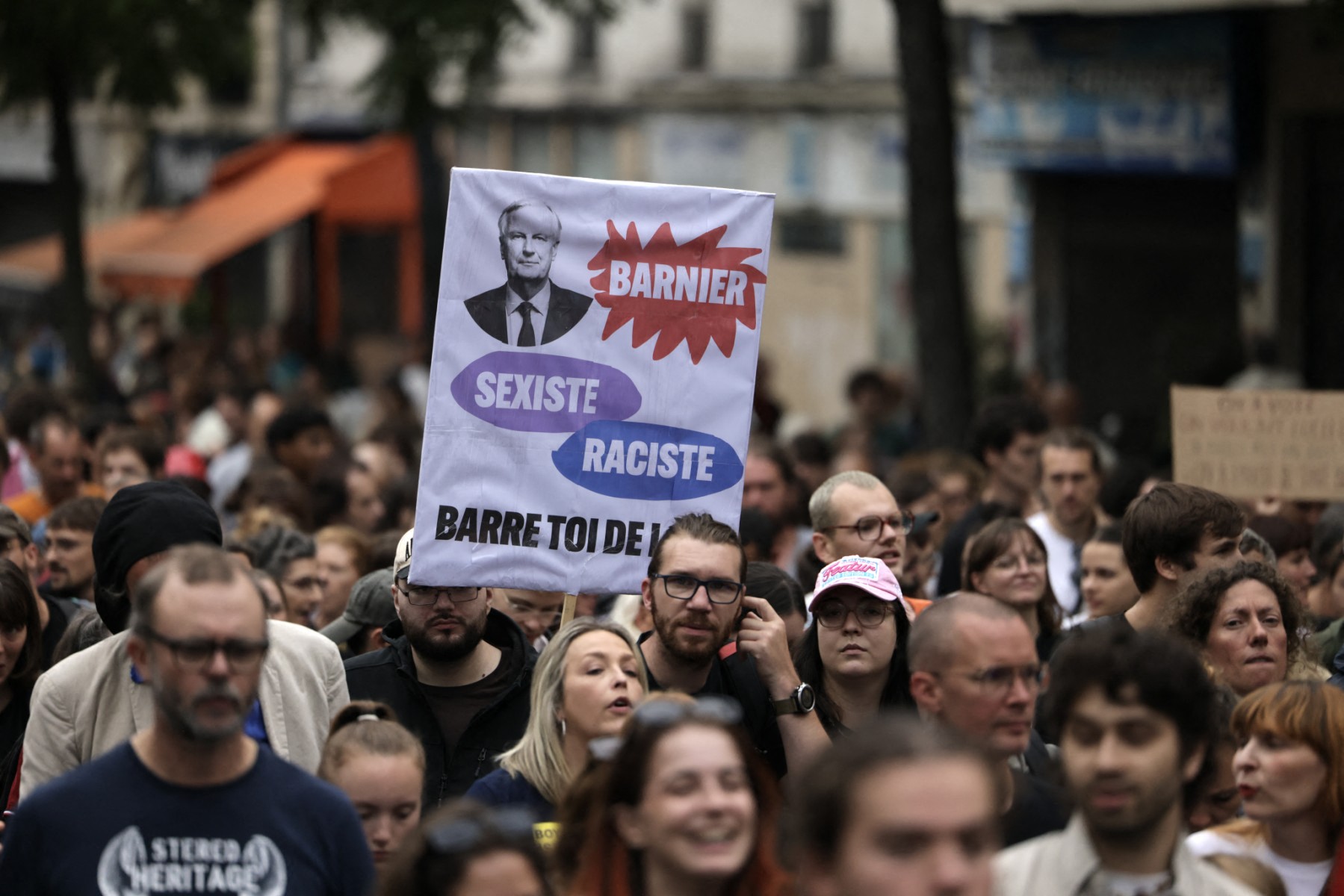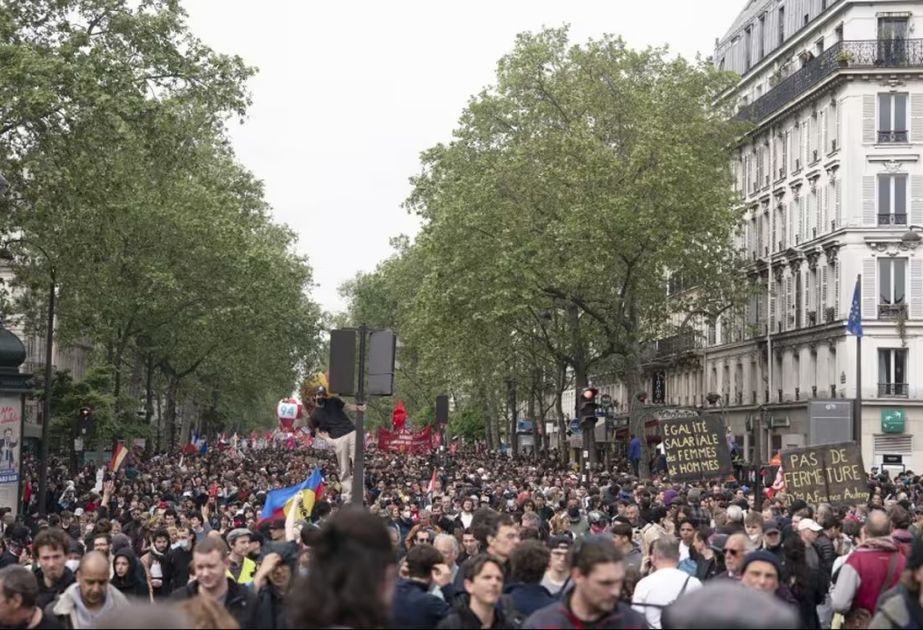The Panguna mine made a fortune but left war and pollution in its wake. A new lawsuit backed by anonymous investors is now seeking billions in compensation – and raising concerns about who stands to benefit.

Two young women gave their accounts of rape by Russian soldiers to the Kyiv Independent, who set out to identify those responsible.
Reported by
Aubrey Belford (OCCRP)
August 1st, 2024
High in the forested mountains of Papua New Guinea’s Bougainville Island lies an abandoned, kilometer-wide crater cut deep into the earth.
Formerly one of the world’s largest gold and copper mines, the open pit now serves as an unsightly monument to the environmental and social chaos that underground riches can create.
Run for years by a subsidiary of Anglo-Australian giant Rio Tinto, the Panguna mine earned millions for Papua New Guinea (PNG) and helped bankroll its newfound independence. But it also poured waste into local waterways and fuelled anger among locals who felt robbed of the profits. When an armed uprising ultimately shuttered the mine in 1989, the impoverished island was left reeling.
Nearly three decades later, in late 2022, human rights activists, the local government, and the mine’s former operators joined forces to produce a definitive assessment of the mine’s toxic legacy. Their report, due to be released later this month, will become the basis for negotiations aimed at getting the mining companies to finally clean up the mess and compensate affected communities.
But its supporters now worry their efforts will be undermined by a class-action lawsuit launched in May against the mine’s erstwhile operators. The legal effort is being championed by former rebel leaders — and backed by anonymous offshore investors who stand to make hundreds of millions of dollars if it succeeds.
The lawsuit is part of a worldwide boom in litigation financing that seeks to take multinational companies to task for ecological or social damage while potentially reaping a fortune for lawyers and funders.
Critics in Bougainville worry the lawsuit will reopen old wounds at a time when the island is making a push to break free of PNG and become the world’s newest sovereign nation. Many Bougainvilleans are hoping to reopen the mine, using its wealth to fund their own independence this time around.
The region’s government and many local leaders believe the class action could put the mine’s revival at risk. There are also concerns the lawsuit would leave many Bougainvilleans empty handed, while the anonymous foreign investors would walk away with a significant share of the payout.
Unlike the official assessment, which seeks to identify everyone who needs to be compensated, the class action will only share its winnings — which could potentially be in the billions of dollars — with the locals who have signed on. Others will get nothing.
“There’s already fragmentation in the community and families are already divided,” said Theonila Roka Matbob, who represents the area around Panguna in the island’s parliament and has helped lead the government-backed assessment process as a minister in the Autonomous Bougainville government.
She speaks from personal experience. The chief litigant in the class-action lawsuit, Martin Miriori, is her uncle. The two are no longer on speaking terms.
A Losing Deal
Gouged from Bougainville’s lush volcanic heart, the Panguna mine in its heyday supplied as much as 45 percent of PNG’s export revenue, providing it with the financial means to achieve independence from Australia in 1975.
The windfall, however, didn’t extend to Bougainvilleans themselves. Ethnically and culturally distinct from the rest of PNG’s population, they saw Panguna as a symbol of external domination. The mine delivered only a miserly 2-percent share of its profits to their island — along with years of environmental havoc.
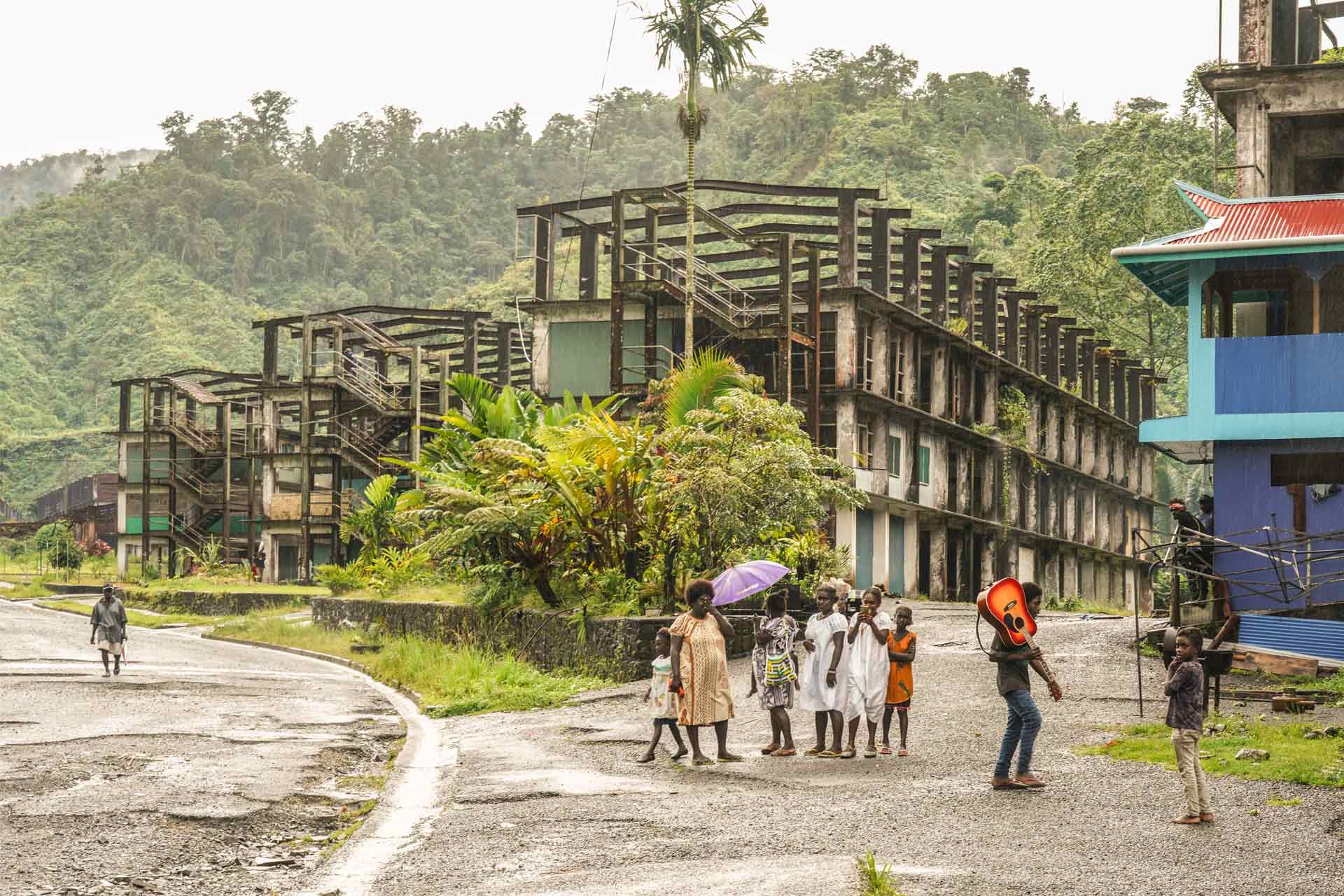
During the 17 years of Panguna’s operation — from 1972 to 1989 — over a billion metric tons of toxic mine waste and electric blue copper runoff flooded rivers that flowed downstream towards communities of subsistence farmers. The result was poisoned drinking water, infertile land, and children who were drowned or injured trying to cross engorged waterways.
In 1989, enraged Bougainville locals launched an armed rebellion against the PNG government. The mine was shut down, closing off a vital source of revenue for the national government in Port Moresby. A brutal civil war raged on for nearly a decade, leaving more than 15,000 people dead, while a naval blockade by PNG’s military obliterated the island’s economy.
A peace deal in 2000 granted Bougainville substantial autonomy. But nearly a quarter-century later, the legacy of Panguna and the war it provoked is still deeply felt.
There are few paved roads and bridges in the island’s interior. Residents earn a modest living through cocoa and coconut farming, or by unregulated artisanal mining in and around the abandoned Panguna crater. Rivers polluted by years of runoff are still an otherworldly shade of milky blue.
At least 300,000 people are estimated to live on Bougainville, including as many as 15,000 who live downstream of the mine. Of those, some 4,500 have joined Miriori — Roka’s estranged uncle and a tribal leader whose brother, Joseph Kabui, served as the first president of autonomous Bougainville — in seeking restitution through the class-action suit.
“We've got to make people happy,” Miriori said. “They've lost their land forever, environment forever. Their hunting grounds. Their spiritual, sacred grounds.”
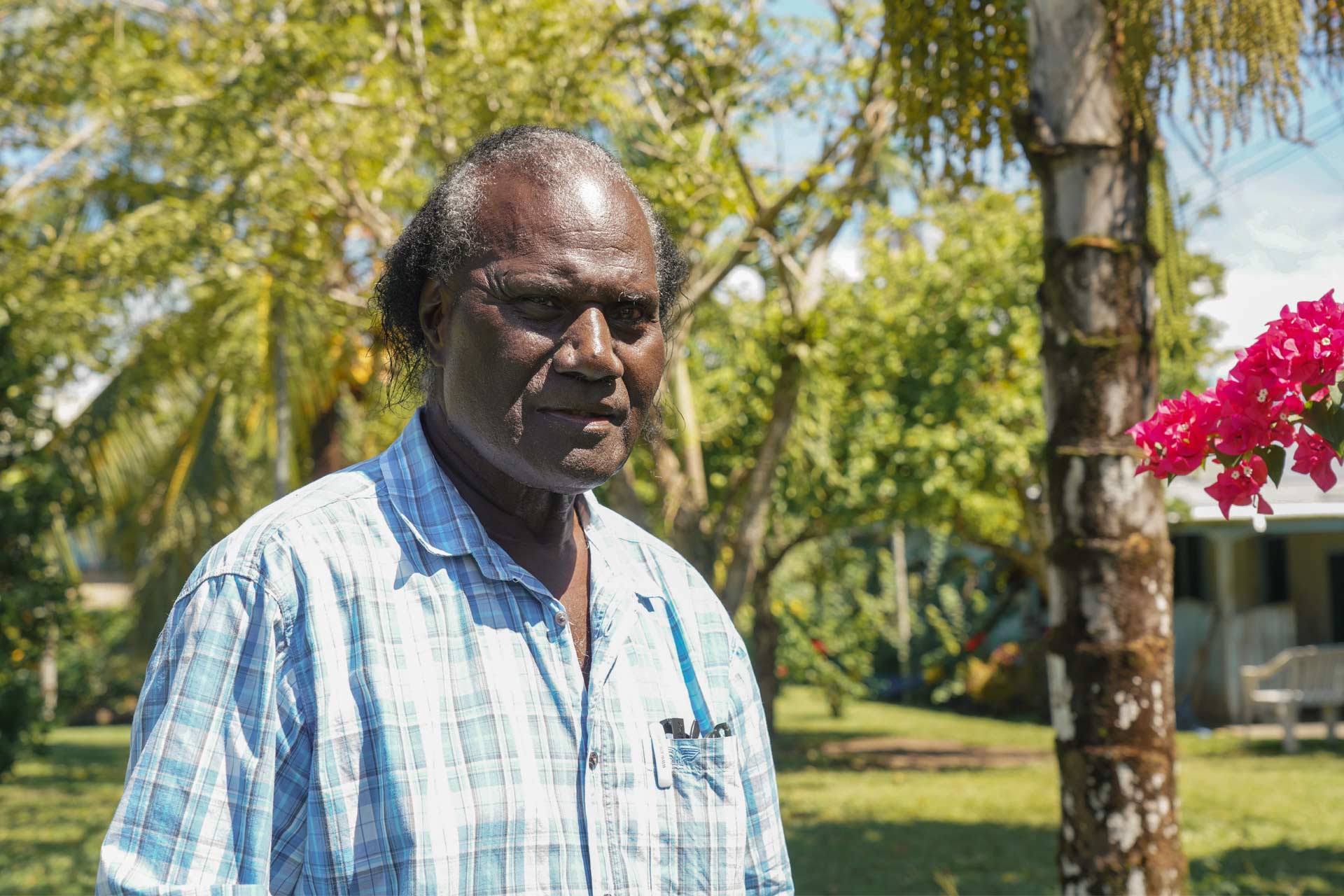 M
M‘Alert to Opportunities’
Miriori took many by surprise when he became the public face of the suit filed in PNG’s National Court in May against Rio Tinto and its former local subsidiary, Bougainville Copper Limited.
While the tribal leader and former rebel is a well-known figure in Bougainville, the funders of the lawsuit are not. They have managed to keep their identities secret in part because the company behind the suit, Panguna Mine Action LLC, is registered on Nevis, a small Caribbean island that does not require companies to publicly disclose their shareholders and directors.
Miriori declined to comment on who was behind the company, saying, “I will not tell you where the funding is based … you can source that from our people down there [in Australia].”
James Sing, an Australian based in New York, is Panguna Mine Action’s chief public representative. He initially agreed to an interview, but later referred reporters back to a London-based public relations agency, Sans Frontières Associates. The agency declined to reveal Panguna Mine Action’s investors.
Litigation funding documents obtained by OCCRP, however, shed some light on the history of the case. The documents show that Panguna Mine Action began to investigate the possibility of a class-action suit as early as July 2021. The Bougainvillean claimants, led by Miriori, were formally brought into an agreement with the company and its Australian and PNG lawyers in November 2022. The suit was publicly announced this May.
The lawsuit’s investors stand to profit handsomely from any eventual settlement: Panguna Mine Action is poised to receive a cut of 20 to 40 percent of any payout resulting from the suit, with the percentage increasing the longer the process takes, the funding documents show. In interviews and statements, both Miriori and Panguna Mine Action have put the potential value of any award in the billions of dollars.
The lawsuit’s financiers defend their substantial share of the potential benefits as standard practice. “The costs of launching and running the class action against a global miner are significant, and almost certainly could not be met from within Bougainville without funding from an external party,” the company said in its statement. Panguna Mine Action added it would bear sole responsibility for costs if the lawsuit is unsuccessful.
According to Michael Russell, a Sydney-based class action defense lawyer, such funding arrangements are typical in the burgeoning world of litigation finance, where investors seek out cases that promote virtuous social causes while offering huge potential payoffs.
A similar case is unfolding in Latin America, where more than 720,000 Brazilians are seeking $46.5 billion as part of a gargantuan class action suit against mining giant BHP and its local subsidiary for their role in a 2015 dam collapse.
In such cases, funders can justify walking away with significant cuts of any winnings because of the substantial risk they face of losing their investment if a case fails, Russell said.
Such cases are rarely initiated at the grassroots level by the victims themselves, he added.
“Most of the time, either the plaintiff firms or the funders will be the catalyst for a claim,” he said. “They are very alert to opportunities.”
Rival Restitution Plans
Government officials including Miriori’s niece, Roka, say the class-action case, which is due to hold opening arguments in October, threatens to derail the ongoing impact assessment aimed at calculating the full cost of the mine’s environmental impact and developing recommendations for addressing the damage.
The assessment, which counts community members among its stakeholders and bills itself as an independent review, is supported by Australia’s Human Rights Law Centre, who has hailed the project as “an important step” towards rectifying the mine’s devastating impact on thousands of Bougainvilleans.
However, while Rio Tinto and Bougainville Copper are both funding the project, they have not yet committed to paying for any compensation or cleanup. Roka said she was concerned the lawsuit could reduce the company’s willingness to engage with the process, since it could view the assessment as a tool that could be used against them in the courtroom.
The island’s president, Ishmael Toroama, backs the impact assessment and has lambasted the class-action suit as the work of “faceless investors… taking advantage of vulnerable groups.” (His office did not respond to an interview request.)
He also expressed concern that the court proceedings threaten to “disrupt” his government's efforts to reopen the mine, which still holds an estimated $60 billion in untapped deposits. Bougainville’s leaders see the mine as key to securing the island’s economic future as it sets out to form an independent state – a dream that drew overwhelming public support in a 2019 referendum.
Earlier this year Toroama’s government granted Bougainville Copper a five-year exploration license for the Panguna site.
The lack of media and polling in Bougainville make it hard to measure public opinion on plans to reactivate the mine, but many locals appear to support reopening it under local control as an essential tool for achieving independence.
Bougainville Copper’s brand is still toxically associated with Rio Tinto and its past abuses, despite the fact that the international mining giant gave away its majority stake for no money in 2016. The publicly traded company is now majority co-owned by the governments of PNG and Bougainville, and Port Moresby has pledged to hand over all its shares to the autonomous region in the near future.
Panguna Mine Action acknowledges that its effort could stand in the way of the mine’s reopening — but the company says that’s a good thing.
“It is our understanding that the people of Bougainville do not wish mining to be recommenced under any circumstances or, alternatively, unless Rio Tinto and Bougainville Copper acknowledge the past, pay compensation and remediate the rivers and surrounding valley,” the company said in a statement.
Rio Tinto declined to comment. Mel Togolo, the chairman of Bougainville Copper, told OCCRP that the lawsuit was the work of “a foreign funder who no doubt is seeking a return on an investment.”
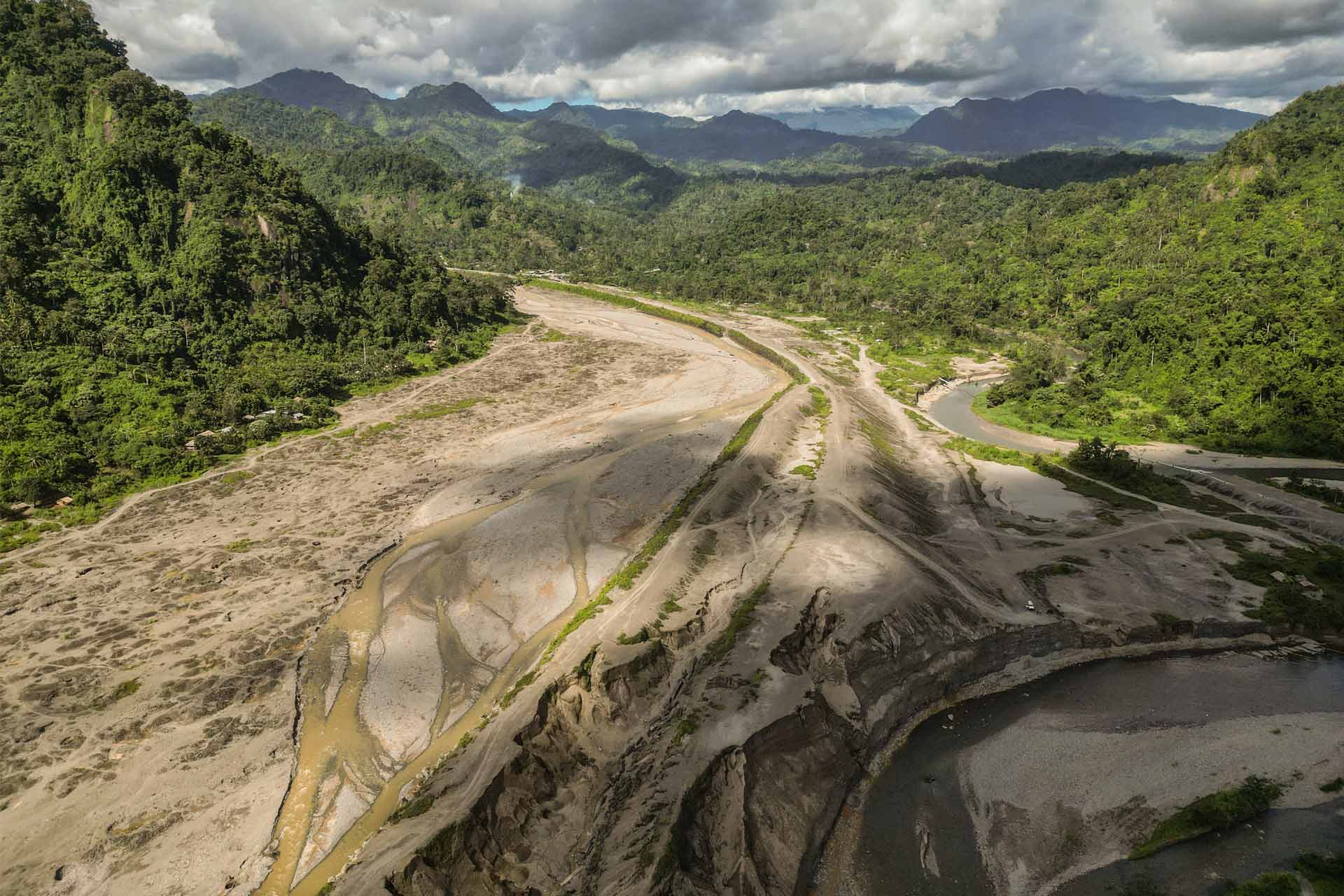
‘Only Those Who Have Signed Will Benefit’
The fight over Panguna adds even more uncertainty to long-running anxiety over Bougainville’s future.
With global copper prices soaring on high demand for renewable energy and electric vehicles, the Panguna mine would be an attractive prize for both Western mining companies and firms from China, which is dramatically expanding its influence in the South Pacific.
Since a future Bougainvillean state would be economically dependent on the mine’s revenue, some have raised concerns that control of the mine could become a proxy battle for geopolitical influence in the broader region.
For his part, Miriori expressed little concern that a multibillion-dollar payout might stir resentment by reaching only a fraction of the people affected by the mine’s environmental destruction.
“Only those who signed will benefit,” he said, adding that the opportunity was made “very clear to people” through awareness campaigns.
“Those who have not signed, it’s their freedom of choice.”
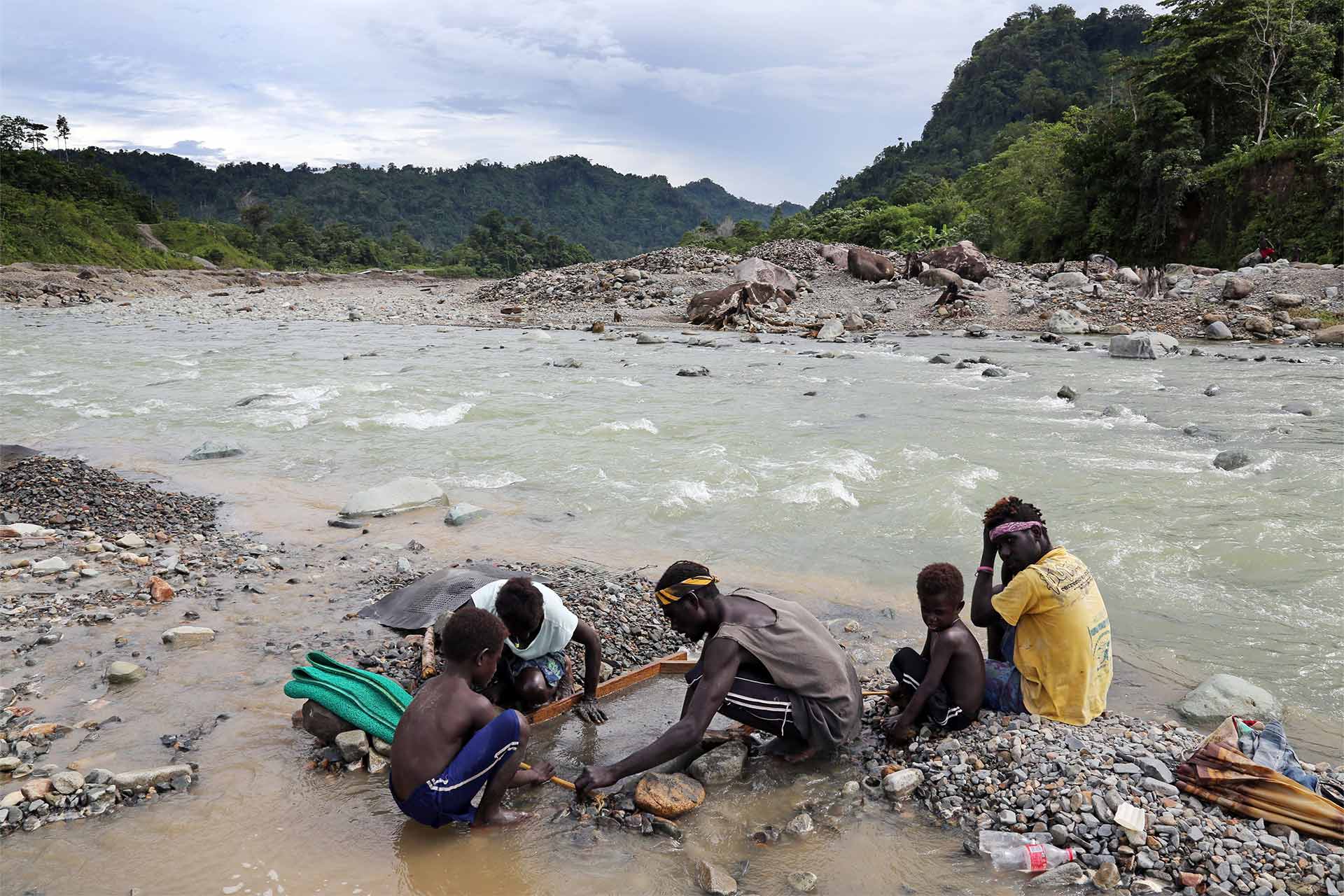
Among those who didn’t sign is Wendy Bowara, 48, who lives in Dapera, a bleak settlement built on a hill of mine waste. Bowara said she is looking to the government-backed assessment, not the lawsuit, to deliver compensation and clean up Panguna’s toxic legacy.
“We are living on top of chemicals,” she said. “Copper concentration is high. I don’t know if the food is good to eat or if it’s healthy to drink the water.”
But while it may seem odd given her grim surroundings, Borawa says she strongly supports reopening the mine.
“It funded the independence of Papua New Guinea,” Bowara said. “Why can’t we use it to fund our own independence?”
Allan Gioni contributed reporting.








